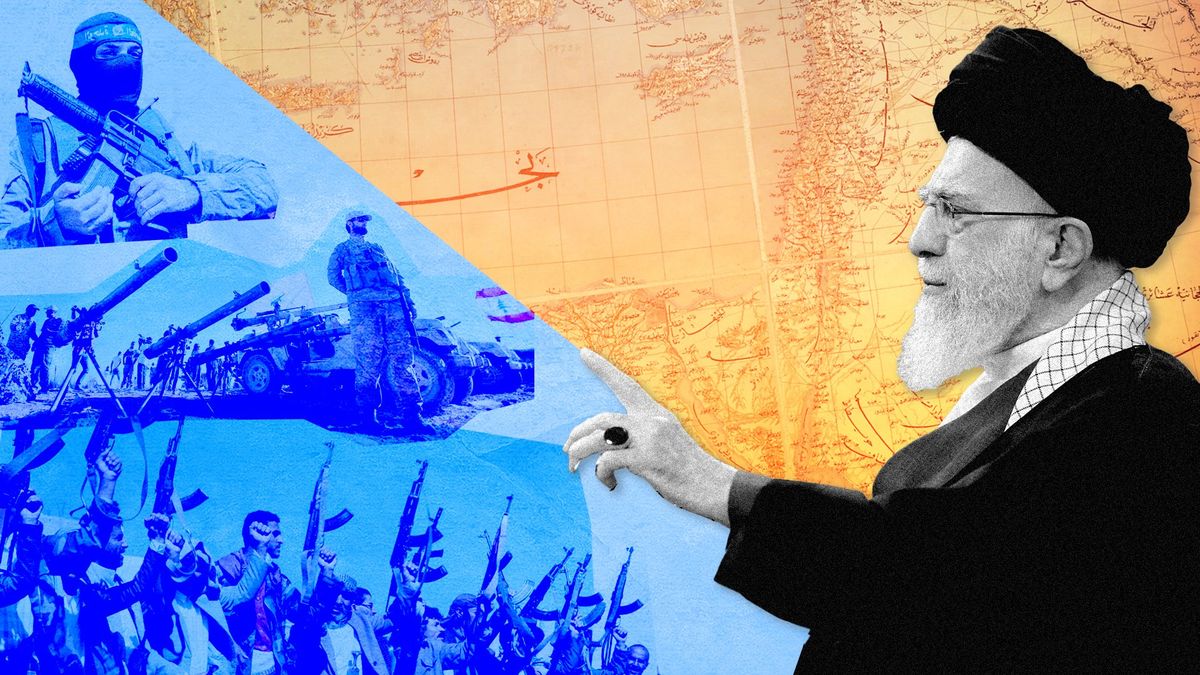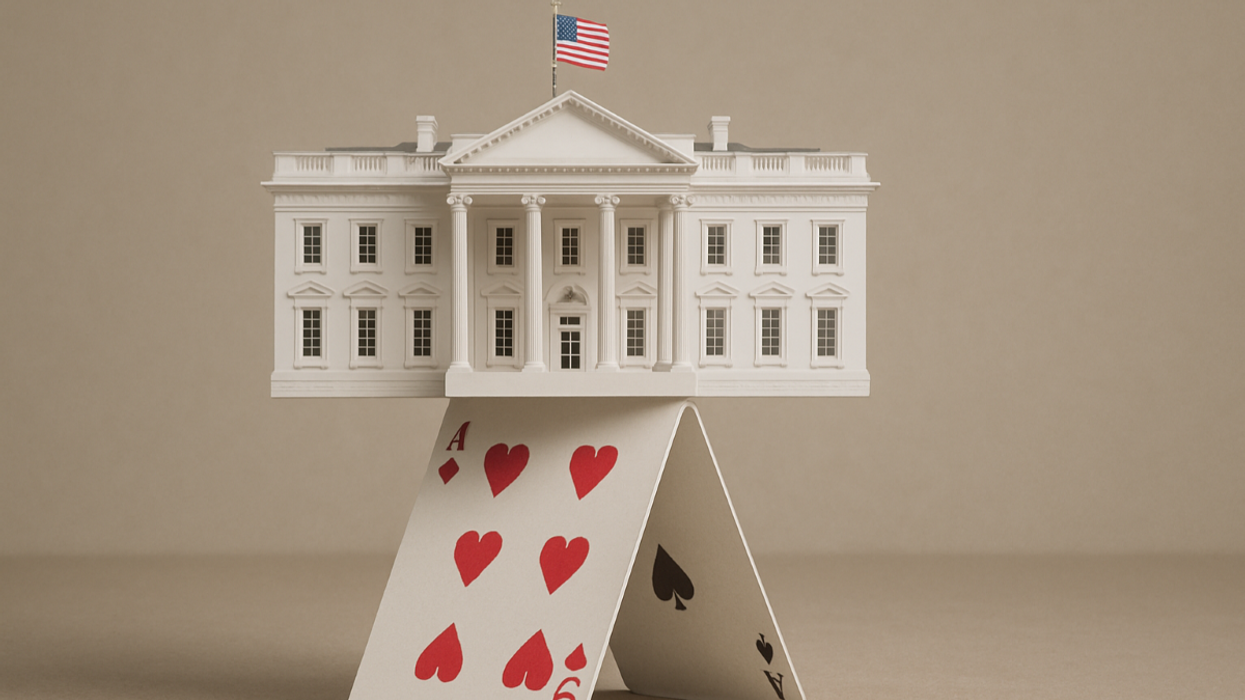As Israel threatens an offensive into Rafah, its regional nemesis Iran is pulling itself away from the brink of war – and may even welcome a cease-fire in Gaza.
Since an attack by one of its Iraqi proxies killed three American servicemen in Jordan on Jan. 28, Iran has been signaling its allies in the Resistance Front to cool it and avoid actions that might prompt retaliation from Israel or the United States.
The commander of Iran’s Quds Force, the elite branch of the Islamic Revolutionary Guards Corps, traveled to Iraq in January and ordered Iran’s allies there to hold off on attacking US forces. The pressure from their patron in Tehran seems to have worked, at least for now: Since Feb. 4, no US troops have been targeted in militia attacks. Iran has also told its closest ally, Hezbollah, to avoid provoking Israel at a time when tensions on Israel’s border with Lebanon remain high.
While the Houthis, Iran’s ally in Yemen, have continued their attacks on commercial shipping, Iran took a notable step to protect its own assets in the Red Sea. The Iranian observation ship, the MV Behshad, widely believed to be assisting Houthi targeting, has dropped anchor near a Chinese squadron in Djibouti and isn’t actively involved in Houthi operations anymore. There’s even been tentative signs that Iran’s enrichment of uranium has slowed a little – though Iran continues to enrich at a rapid pace, it doesn’t seem as interested in building a bomb as it once was.
Iran continues to talk tough, but actions speak louder than words. And for the moment at least, those actions seem geared toward keeping the Middle East conflict from spreading any further than it already has.
Though it’s hard to know for sure what’s going on inside the head of Supreme Leader Ali Khamenei, my bet is Iran’s moves are down to self-preservation and risk management. As is often the case, the leadership of the Islamic Republic is worried first and foremost about its own survival. While it’s made some gains from the crisis so far, Iran is now trying to avoid a bigger fight that could endanger its regional position and put more pressure on its own shaky domestic security.
Iran is winning – and wants to keep it that way
When Hamas attacked Israel on Oct. 7, Iran stood to benefit from its proxy sowing chaos.
The horrific attack pulled Israel into a domestic security crisis and bogged the Israel Defense Forces down in a war in Gaza from which it has yet to emerge. Iran is confident that Hamas will survive this war–battered, perhaps, but still present. Israel, on the other hand, will emerge badly damaged diplomatically and morally (if not also economically and militarily).
Iran is also happy to see progress on Israeli normalization with Saudi Arabia delayed or scuttled since the grand bargain was clearly aimed at containing the spread of Iran’s regional influence. For their part, Iran’s diplomats have loudly denounced Israel’s operations in Gaza and tried to leverage the crisis into closer ties to other Middle Eastern states. Meanwhile, its Resistance Front coalition has proven it can coordinate on grand strategy like never before. Iran’s allies have launched hundreds of attacks to signal solidarity with Hamas, and the Houthis have effectively closed the Red Sea to Western shipping.
On balance, then, Iran has been coming out ahead in this war.
But that balance could change if the conflict expands further. Iran talks tough, and its regional allies have grown bolder, but a conventional military conflict with Israel would not go its way – apart from its impressive array of ballistic missiles, most of Iran’s military is built upon Cold War-era hardware. Iran is well aware of the Israeli threat to Hezbollah, Iran’s largest and strongest ally. Should war break out along Israel’s northern border, Iran would feel obligated to step in and support its ally, risking more of its forces in a knock-down fight with Israel.
The same holds true for a fight with the United States. Iran wants to get the US out of Iraq and Syria and has backed a variety of militias and proxies to support that goal. These groups are chomping at the bit, but Iran – or, more specifically, Supreme Leader Khamenei – has always favored “strategic patience” and has been waiting things out, confident that gradual pressure will force the US out in time, without the need for a big, bloody fight.
Iran’s leaders are eager to keep the war from coming home
Tehran is wary of the conflict expanding due to the impact it would have on the home front. With the memory of the 2022 protest wave still fresh, the regime is anxious to keep a lid on domestic violence and instability, especially as a succession crisis could happen at any moment – after all, Khamenei is 84 years old, in poor health, and lacks a clear successor.
That doesn’t mean it has avoided the escalating crisis, which has grown in new and unexpected ways. A massive terrorist attack in Kerman in early January revealed gaps in the regime’s security apparatus, prompting it to lash out against its neighbors – including Pakistan, which it bombarded with missiles (Tehran and Islamabad made up quickly, fortunate given that Pakistan is a nuclear power). Public concern over security was further heightened following the deaths of US servicemen in Jordan. Iran’s media was filled with reports of impending US direct air strikes against Iran, Khamenei called an emergency meeting of the Supreme National Security Council, and the national air defense system was put on high alert. On Feb. 14, twin explosions shut down the nation’s largest pipeline, shutting off gas to millions. Reports confirmed that Israel was probably behind the attack.
Faced with the threat of escalation, Iran has pulled back
Faced with a potential escalation cascade, Iran’s response has been to pull back – a little, if not entirely – to avoid getting entangled in a bloody fight that could have consequences for its own domestic stability.
And it’s gotten some help from an unexpected corner: The United States, also anxious to avoid a bigger fight, has been working to contain the crisis. Following the attack in Jordan, President Joe Biden signaled that there would be US retaliation but waited a week to strike back, giving Iran plenty of time to withdraw its forces from Syria. Other US strikes – including a drone attack on an Iraqi militia commander in Baghdad and a cyberattack against the MV Behshad – have stayed within the escalatory threshold.
To be sure, the crisis is nowhere near over, and escalatory risks remain very much present. The Houthis continue to lob missiles at passing ships, and they have been upping their game to include drone submarines that are tougher to detect. The Iraqi militias may have stopped their attacks on US forces, but there’s no guarantee the pause will last. Tehran has proven it has influence over these groups and can issue orders to them, but it lacks control. If a Houthi missile hits a US warship, there’s not much Tehran can do to prevent a US retaliation and a spiraling conflict.
But Iran preferring restraint to escalation is still welcome news for a region – and a world – that could use some.



















